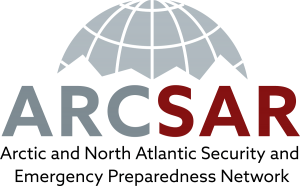Listing Details
United States Coast Guard Academy – USA
The United States Coast Guard Academy is part of the Centre for Arctic Study and Policy of the United States, under the Department of Homeland Security. The United States Coast Guard Academy (a federal practitioner training academy) has established a Centre for Arctic Study & Policy (CASP) to promote academic research on Arctic policy and strategy by facilitating collaboration, partnerships, and dialogue among specialists from academia, government, tribal organizations, NGOs, industry, and the U.S. Coast Guard. CASP will serve as an operationally focused academic think tank to promote research, broaden partnerships, and educate future leaders about the complexities of this unique region. Through collaborative efforts, the Centre will promote effective solutions to address present and future Arctic maritime challenges as the Coast Guard increases its Arctic presence.
The Arctic is warming faster than any other part of the globe. Fundamental changes are cascading through Arctic environmental systems: land, sea, and air. As human activity increases in the region, change is also surging through economic, political, and cultural systems. These changes are carrying the Arctic region into uncertain future, at an unknown pace.
The demand for USCG missions in the Arctic is increasing. The influx of human maritime activity in the Arctic relating to fishing, shipping, tourism, and offshore development requires government presence. The changes occurring in the Arctic region pose a major challenge to the nation and DHS/USCG. What increase in capacity is needed, when, and where? Where will the resources be found to support expanded capacity? From these broad questions flow many more. USCG has identified key objectives for the Arctic region (2013), and must now develop and implement strategy and policies to achieve these objectives. While the need is not yet critical, the trend lines are clear. Estimates vary, but generally identify 20202040 as the window within which the summer Arctic will be essentially icefree. Major policy responses, including the construction major infrastructure projects, including a deep-water port or an icebreaker, typically take a decade. Strategic planning, including a focus on the successful resourcing and implementation of USCG objectives, should not be delayed to the point of urgency, when decision quality is likely to be degraded.
The opening of the Arctic poses a disruptive challenge to the nation and DHS/USCG. This is the type of challenge to which an institution must evolve or risk failure in key mission areas. Institutions often address these challenges by identifying and driving needed change from outside established centres of authority, and by inculcating cultural and/or generational change in the future leadership of the organization.
A successful organization requires a clear purpose and reason for existence. There are multiple centres that conduct research in the US. Furthermore, many of these conduct policy research. The Aspen Institute, Brookings, CSIS, and RAND are all prominent examples. There are research centres that specifically address polar/Arctic issues. Furthermore, there are policy and strategy specialists within the USCG. Some of these individuals are placed at the highest levels of the organization, and located at the organizational heart of USCG at its DC headquarters. Therefore, the question of “why” is of foremost importance to CASP.
First, USCG needs advice that it can trust, from a source that will be heard and respected. CASP is unquestionably devoted to a mission created by USCG, and, by virtue of its position. The key to maintaining trust and respect is demonstrable results, including effective analysis and recommendations on Arctic strategy and policy implementation. CASP should address core strategic and policy challenges confronting DHS/USCG in the Arctic, identified and prioritized through twoway dialogue with all relevant parts of the organization.
USCG needs advice from an honest broker, a source that is insulated from the organizational chain of command and has no stake in the outcome. Being outside the organizational “bubble” insulates CASP from the short time horizons and organizational dynamics of headquarters. Academia is built on commitment to freedom of thought and inquiry for the sake of advancing knowledge; an academic source of advice may not fit seamlessly into USCG organizational culture, but will produce results grounded in a culture of learning and knowledgeseeking that is not endemic to bureaucracies. CASP must be willing and able to produce analysis that is sometimes critical of USCG, and to be honest it must be protected: its people, budgets, and time.



